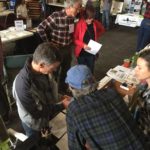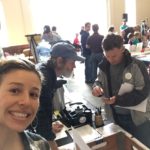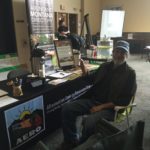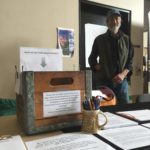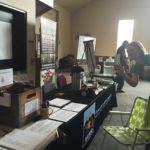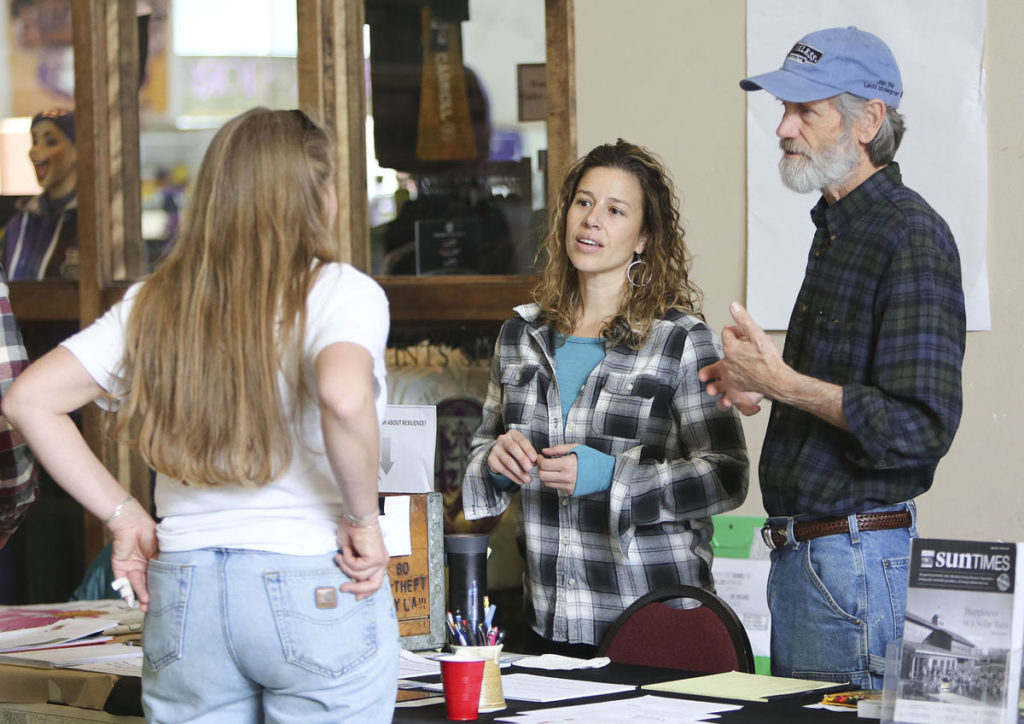
Earth Day Expo 2016 (Photo Credit: Gary Marshall)
In April, we teamed up with local Helena residents & activists, Max Milton & Chris Stockwell (of 6th Ward Community Garden) to explore the topic of resilience at Earth Day Expo 2016 organized by Alternative Energy Resources Organization, Carroll College Environmental Program, Montana Department of Environmental Quality & Natural Resources Conservation Service.
Our goals were to provide an opportunity for community members to think & talk about resilience, to gauge how Helena residents felt about resilience and to provide future avenues for residents to get involved!
Questions Posed
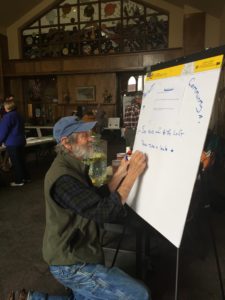 The following questions represented the bulk of our focus for the day:
The following questions represented the bulk of our focus for the day:
- Is the Helena area a resilient community?
- How would we know? What things would be in place? How could we measure it?
- What aspects of our community that already exist do you think of when answering the first two questions?
- What are the functions of a resilient community & who are the responsible parties for ensuring these obtain?
We also offered a take-home questionnaire with a series of things to ponder called considering resilience philosophically. Example questions included:
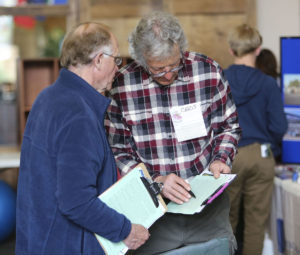
Earth Day 2016 (Photo Credit: Gary Marshall)
- What does it mean to be resilient (ecologically, psychologically, sociologically, economically, politically, philosophically, other)?
- Assuming that things like justice & fairness are important, how do we honor these sorts of things when laying out plans to be a more resilient community?
- And more…
View the resilience and functions/responsible parties questionnaires (to be uploaded soon) & considering resilience philosophically questionnaire here!
Community Response Highlights
Below are some highlights of community member responses regarding some of the Helena Resilience project questions. View Earth Day Expo 2016 Photos in the Helena Independent Record.
Is the Helena area a resilient community?
- Yes
- Sure
- No
- Unknown
We could be more resilient in the way of community involvement if there was a catastrophe. – Helena community member
While I can’t say we are completely resilient as a community, we have elements in place that make me hope that we are resilient (or at least moving toward resilience). If we think of resilience with regard to local food supply systems, I don’t think we have achieved a level of resilience. Natural disasters (e.g., earthquakes) or a man-caused disaster would unfortunately test our resilience. I suspect that we would fall short in the area of transportation in particular. – Helena community member
How would we know? What things would be in place? How could we measure it?
- Diverse resources
- Multiple water sources
- Local food sources
- Days of food available
- Emergency response plans, disaster relief (organized group participation)
- Delivery of clean water (ongoing & in times of emergency)
- Transportation and safety
- Intergenerational programs
- Services for elderly
- Educational services & continued learning opportunities
- Environmentally-sensitive practices & programs
- Moving toward less consumption
- Query the population
- Compare communities in Montana regarding what constitutes a resilient community
What aspects of our community that already exist do you think of when answering the first two questions?
- Giving, supportive community, community involvement, people looking out for one another
- High human potential
- Elderly
- Disabled
- Environmental
- Recreational opportunities (e.g., hiking trails)
- Recycling
Just filling this form out makes me think about resilience in a different way – a broader way – than I had before. Resilience is about more than disaster relief. Our community has so much room for more sustainable, everyday resiliency. I look forward to more information about this project.- Helena community member
What are the functions of a resilient community & who are the responsible parties for ensuring these obtain?
- Clean Water – Local Government
- Food supply in stores – Business Community
- Electricity, Natural Gas – Business community, State Government
- Sewage Treatment – Local Government
- Trash Removal – Local Government, Business Community
- Transportation (roads, public, recreational) – State & Local Government, Non-Profit Organizations, Individuals/Community Members
- Health Services (hospital care, health clinics, medical personnel, emergency care) – Business Services, Non-Profit Organizations
- Communication (mail, phone, internet, tv radio news) – State & Local Government, Business Community, Non-Profit Organizations (Public Radio TV)
General Resilience Resources
- Resilience.org (daily & weekly resilience-related stories, articles, reports)
- Post Carbon Institute Blog (articles, book reviews & news)
- Resilient Against What? (book about how leading U.S. municipalities are understanding & acting on resilience)
- Six Foundations for Building Community Resilience (concept paper)
- Resiliency Center (website w/ resources)
If you are interested in learning more about resilience and/or participating in resilience cafe conversations, please contact us.


